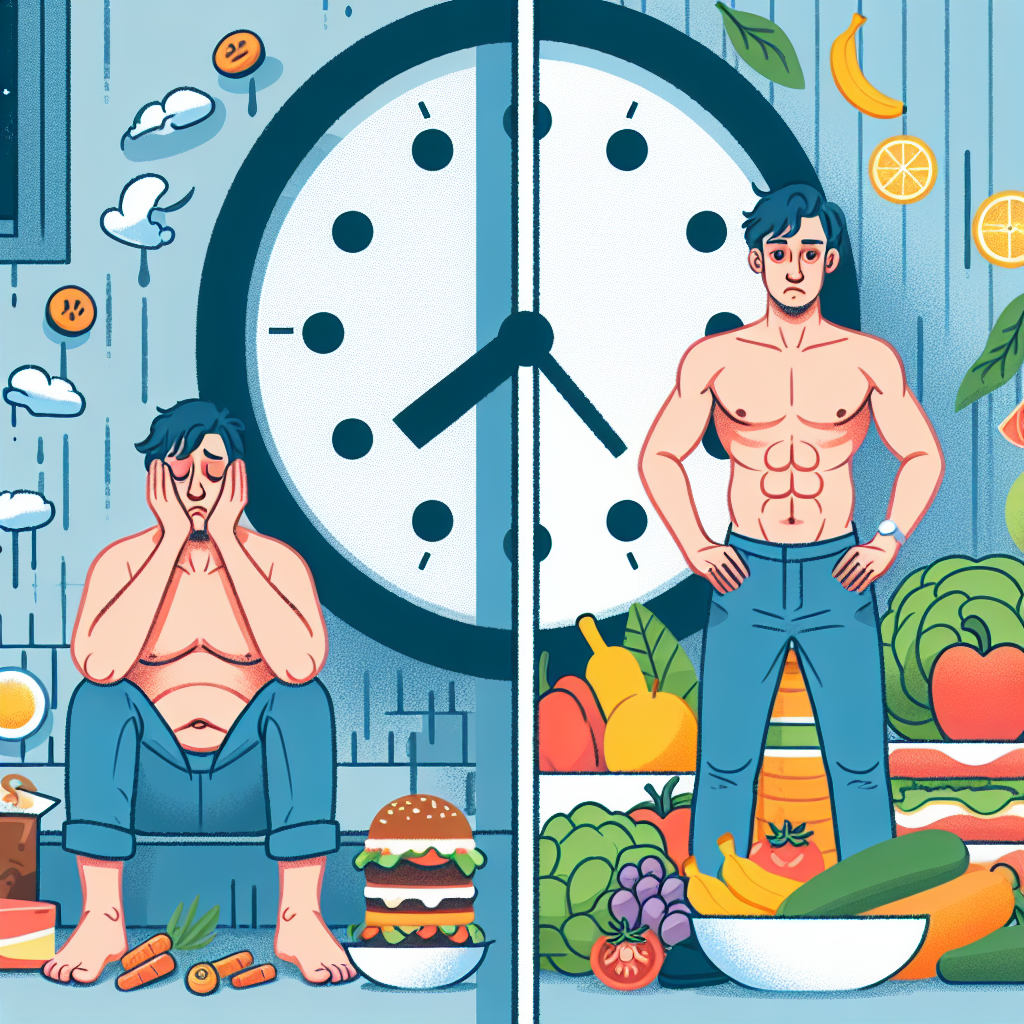How Intermittent Fasting Transformed My Relationship with Food
In a world saturated with diet trends and nutritional advice, finding a sustainable approach to eating can often feel overwhelming. For me, the journey to a healthier relationship with food took an unexpected turn when I embraced intermittent fasting. Initially skeptical, I soon discovered that this eating pattern not only changed my eating habits but also reshaped my mindset around food altogether.
The Beginning: A Struggle with Food Choices
Before I ventured into the world of intermittent fasting, my relationship with food was largely driven by emotional triggers and societal pressures. I often found myself caught in a cycle of dieting, bingeing, and guilt. Meals were marked by anxiety, the constant worry about calorie counts and the judgment of my choices, leaving me feeling more disconnected from food than ever.
Discovering Intermittent Fasting
My introduction to intermittent fasting (IF) was serendipitous. A friend had transformed her energy levels and overall health using the method, and her enthusiasm was contagious. I began to explore the science behind IF and discovered its potential benefits, such as improved metabolism, better focus, and enhanced mental clarity. Intrigued, I decided to give it a try.
Intermittent fasting typically involves cycles of eating and fasting, with popular methods like the 16/8 method (fasting for 16 hours and eating within an 8-hour window). I chose this flexible approach, allowing me to skip breakfast without feeling deprived.
The Transformation Begins
The first few days were challenging. My body initially craved its usual breakfast, protests echoing in my stomach. However, as the days passed, something remarkable began to happen: I started to feel a sense of liberation. Without the pressure to conform to three meals a day plus snacks, I began to rethink how I viewed eating.
Instead of mindlessly grazing, I learned to appreciate my meals more deeply. With fewer eating opportunities, I became intentional about what I consumed. The foods I chose were not just about filling my stomach; they became a celebration of flavors, nutrition, and nourishment. I began to savor every bite instead of rushing through meals, fostering a newfound appreciation for cooking and trying out whole, nutritious ingredients.
A Shift in Mindset
As I continued with intermittent fasting, the psychological shift was profound. The rigid rules I had imposed on myself began to fade. Rather than feeling guilty about indulging on occasion, I learned to approach food with a balanced mindset. The idea that food could be both nourishing and enjoyable started to settle in. I allowed myself treats without the accompanying guilt.
Fasting also gave me a clearer understanding of hunger. I learned to differentiate between physical hunger and emotional cravings. During my fasting windows, I found myself becoming more in tune with my body’s signals. Instead of reaching for food out of boredom or stress, I began to explore healthier coping mechanisms, such as exercise, meditation, or simply enjoying a good book.
Embracing a Holistic Approach
With my new perspective on food, I began to embrace a more holistic approach to wellness. I focused not only on what I ate but also on how I nourished my body and mind. Mindfulness practices, such as yoga and meditation, complemented my fasting routine. The combination encouraged a greater sense of balance, helping me to manage stress and improve my overall well-being.
Conclusion: A Lasting Impact
Intermittent fasting has transformed my relationship with food in ways I never anticipated. It has instilled a sense of empowerment, freedom, and connection to my body. I no longer view food as an enemy or a source of stress; instead, it has become a vital part of my self-care routine.
This journey is personal and unique, and I’ve learned that there’s no one-size-fits-all approach to wellness. What’s crucial is finding what works for you—your lifestyle, your goals, and your relationship with food. For me, intermittent fasting was the key that unlocked the door to a healthier, more satisfying relationship with what I eat, allowing me to thrive physically and mentally.
If you find yourself struggling with your own relationship with food, perhaps it’s time to consider a different perspective. You never know how a simple shift in approach might transform your experience and, ultimately, your life.
